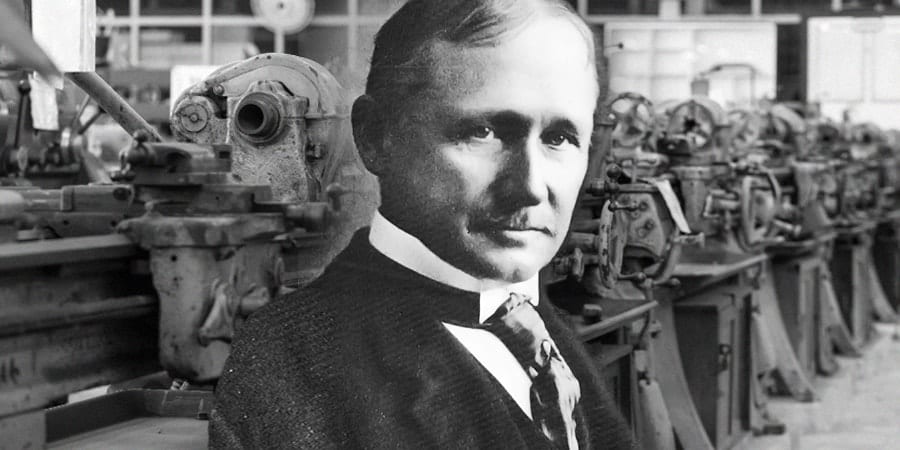It’s one thing to go to the office every day, but it’s another story to exert hard work in what you do. But have you asked yourself what keeps you doing what you’re doing? It’s a difficult question that you can ponder on. It’s the same query that scientists, psychologists, and hiring managers have asked themselves all throughout these years. What really drives a person to be motivated?
Theories on Motivation

QAD | Fredrick Winslow Taylor believed that workers strive more because of money
The energy we feel in pursuing a goal or a dream, it turns out, has a science behind it. If you would ask Fredrick Winslow Taylor, a mechanical engineer who first studied the matter in the 1800s, it is all about what he called scientific management. His theory basically explains that what drives people to work is money and that a financial reward can increase productivity. He also believed that a worker who didn’t do enough work for the day, shouldn’t be paid as much as another co-worker who was more productive than him.

Ladders | Psychologist Elton Mayo observed that workers tend to work harder when their boss is watching
Later on, Elton Mayo, a psychologist and organizational theorist, claimed that employees work harder when the boss is watching over them, which was called the Hawthorne Effect. Both the two theories would sound logical, if not applicable, to you, you may have thought. However, a lot of experts criticized these, while some claim Mayo’s and Taylor’s arguments were valid.
Key to Motivation
Luckily, science had since found the main reason why we work hard – dopamine, which always had the perception that it gives a feeling of pleasure. According to a 2012 Vanderbilt study that made use of a technique called positron emission tomography scan, those willing to work hard in exchange of a reward released higher amounts of the chemical in the striatum and ventromedial prefrontal cortex, which have a hand in motivation and reward. Those who are slackers, meanwhile, released the neurotransmitter more in the anterior insula, the area responsible for risk perception and emotions.
That means dopamine isn’t merely what it is often portrayed. Instead, neuroscientists point out that it also conveys “motivational salience,” which means that the chemical does not just act on rewards, but on stress and other non-rewarding factors as well. In short, the neurotransmitter is responsible for motivating us to or away from something.
How to Use Dopamine to Increase Motivation
Forbes Coaches Council member Sydney Ceruto said there are ways to tweak how the dopamine can act more on the area that provides motivation rather than the part that prevents you from becoming a hard worker. She advises setting realistic and smaller goals at first. Although big aspirations are important as well, it would be easier for achievable, albeit smaller, ones to accomplish. Thus, laying down incremental goals would be helpful because every time you finish a challenge, you will be motivated toward success.

Bedfordview Edenvale News - Divide your big goal into smaller challenges
Ceruto also said that framing works wonders in helping you hack your dopamine. Chances are, if you don’t like what you’re doing, then that makes the task harder to do. On the other side of the equation, when you are passionate about what you’re being told to do, then the job would almost seem like an easy-peasy task. Positive framing can be done so that workers will look at a job as a goal that they aim to accomplish rather than seeing it as what they are required to finish.
